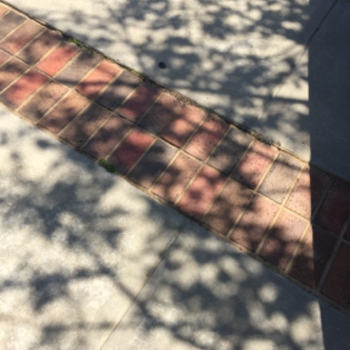Question #fe66b
1 Answer
Halved.
Explanation:
The question is not very cleared. Is electricity involved in the heat generation? If electricity is involved, does the voltage applied to resistor in the electric circuit remain constant?
Let's assume:
1) the voltage across the resistor is constant even when its resistance has doubled,
2) the power dissipated by the electricity in the resistor is converted into heat 100% = the rate of heat generation .
Let
Ohm's Law states that
The power by definition is
Now perform a math trick on
When
Then the power dissipation (rate heat generation) is
The power (rate of heat generation) is thus half as much as before.
Why? Because doubling the resistance reduces the current to half, meaning half as much charges are passing through the resistor. As such less energy is dumped to the resistor.
Note that there is more than one way to draw the same conclusion.

